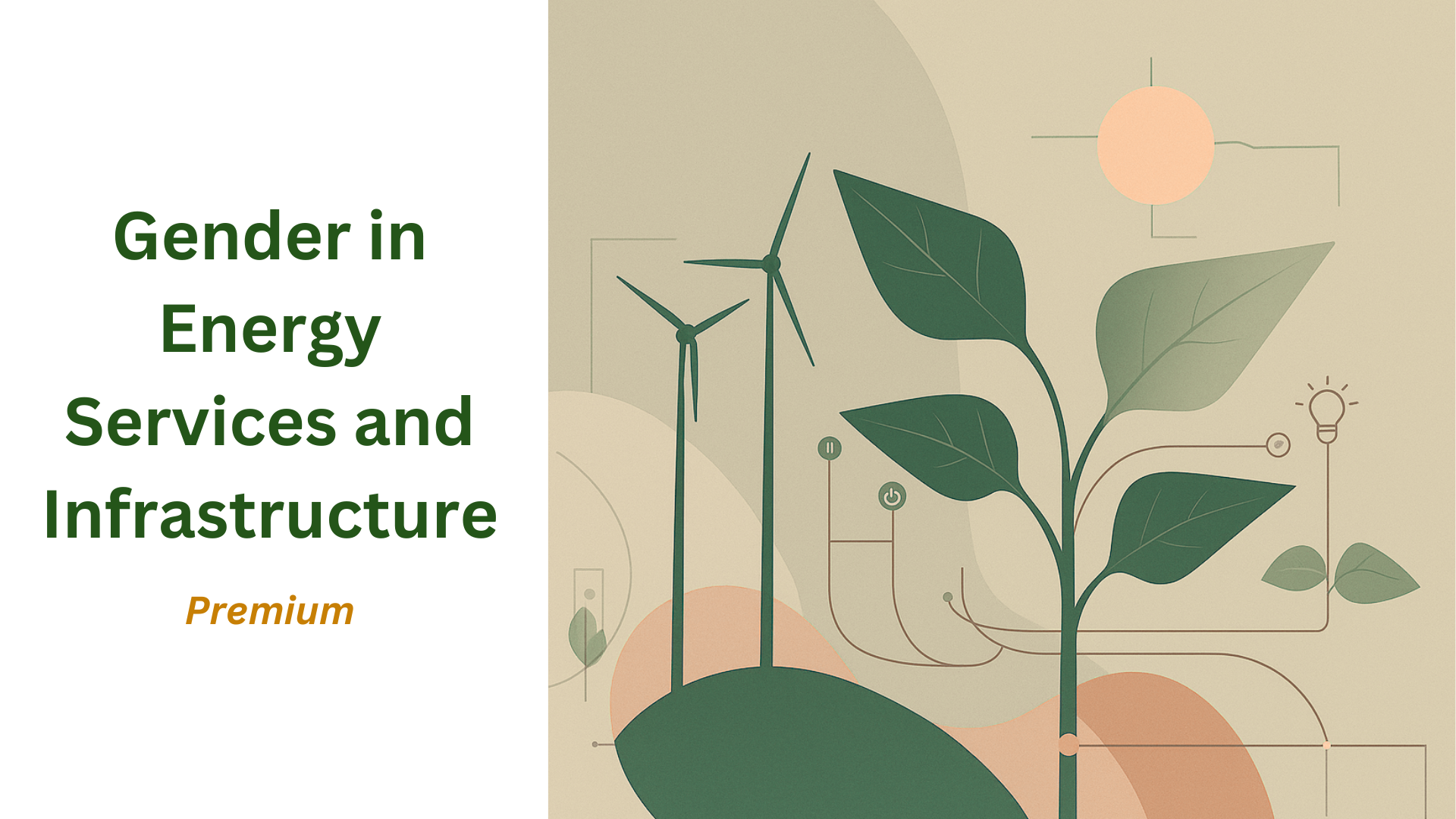What web browser should I use?
The Open edX platform works best with current versions of Chrome, Edge, Firefox, or Safari.
See our list of supported browsers for the most up-to-date information.

Energy isn’t neutral. It impacts people differently, and people use it differently.
Understanding this, understanding the role of gender and intersectionality in energy systems and infrastructure is a critical engineering skill. This EXPLORE Energy Digital Academy (EEDA) course therefore aims to equip energy engineering students with the knowledge and practical tools to design, plan, and implement inclusive energy systems and solutions. Because inclusive energy systems are more effective, they are more sustainable, more innovative, and they are simply put better engineering.
The course consists of 3 lessons as well as a final quiz, and is estimated to require a total of 20 hours to complete. The three lessons are: The three lessons are:
Lesson 1: Introduction to Gender in Energy services and infrastructure
Lesson 2: Gender & Intersectionality – An introduction
Lesson 3: Gender and intersectionality in engineering innovation
Each lesson consists of a self-study learning module as well as an instructor-led “challenge.”
Abstract: This course equips future energy professionals with the knowledge and practical tools to integrate gender and intersectionality into the design, planning, and implementation of energy systems. Through interactive self-learning content including case studies, reflective exercises, quizzes, and video materials, as well as instructor lead classes and assignments, learners explore how social factors - such as gender, age, disability, income, and ethnicity - shape access to and impact of energy solutions. The course thus fosters critical thinking and challenges learners to design technologies that by being inclusive are also more innovative, effective, and sustainable.
Uniqueness: This course breaks new ground by embedding gender and intersectionality at the core of technical energy education - a dimension often overlooked in traditional engineering curricula. It bridges the gap between engineering and social impact, empowering students with a practical, action-oriented approach to inclusive design. Using real-world examples and norm-critical thinking, the course offers a unique blend of social science and engineering practice, giving learners both the mindset and skillset to lead the development of transformative energy solutions that serve diverse populations effectively.
Societal Relevance: Energy systems are foundational to daily life and sustainable development - but without intentional inclusivity, they risk reinforcing existing inequalities. This course addresses a pressing global challenge: how to ensure that clean, modern energy reaches everyone, regardless of gender or social background. By highlighting how intersecting identities influence energy access, use, and outcomes, the course positions learners to become agents of equitable energy transitions. In doing so, it contributes to broader efforts toward gender equality, social justice, and the achievement of the Sustainable Development Goals.
Intended Learning Outcomes: By the end of this course, learners should be able to:
Knowledge: Demonstrate a critical understanding of how gender and intersectionality influence energy access, policies, and solutions, recognizing the need for gender-responsive and inclusive approaches in the energy sector.
Skills: Examine energy projects for their attention to gender and intersectional social dimensions using analytical tools and concepts such as the Gender Spectrum and Gendered Innovations framework.
Responsibility and Autonomy: Critically appraise the inclusion of gender and intersectionality factors in projects or research related to energy systems, highlighting engineers ‘role and responsibility in promoting equitable and inclusive energy practices.
Evaluation and Grading Criteria: To pass this course, students must reach a grade of 80%. The course evaluation is done through instructor-graded assignments, and the automatically corrected questions in each learning module of the course as well as the final quiz. The grading criteria of each self-learning module and the final quiz is "Pass/Fail", instructors will share the specific grading criteria on assignments with learners.
Course Level as per Qualification Framework: This course corresponds to the European Qualification Framework EQF 6
Estimated Learning hours: This course corresponds to 0.73 SMCTS-credits (Stackable Master Credit Transfer System), which translates into 20 Estimated Learning Hours (ELH).
Freemium vs Premium:This Premium version of the course is available to students registered at a university who offers the course. Please discuss this with your study advisor.
The EEDA, and collaboration partners, also offer the Premium version at specific intervals. Please contact the EEDA office to find out more (explore.energy@outlook.com).
A completely self-paced “Freemium”-version of the course is also available.
There are no prerequisites for this course, but learners should be enrolled in engineering studies and have knowledge of basic concepts regarding energy systems.
Learning specialist
The Open edX platform works best with current versions of Chrome, Edge, Firefox, or Safari.
See our list of supported browsers for the most up-to-date information.
The EXPLORE Energy Digital Academy (EEDA) is an Educator-to-Educator collaborative environment in which educators globally commonly and co-creatively develop learning resources with the energy field that then can be used locally by any educator in the network to create courses adapted to their local regional needs.